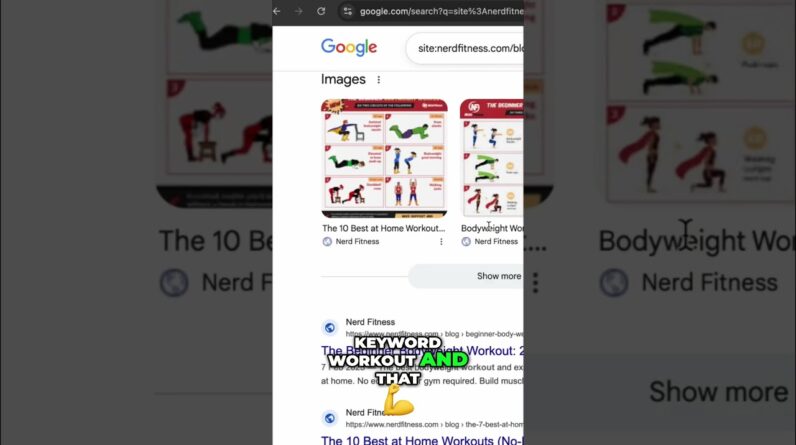
I believe that understanding the differences between On-Page SEO and Off-Page SEO is crucial for anyone looking to rank higher on search engines. In this blog post, I will be sharing some simple tips that can help you optimize your website effectively.
On-Page SEO vs Off-Page SEO: Simple Tips to Rank Higher
Introduction
Hey there, folks! Today, I’ll be diving deep into the world of SEO with a focus on two crucial aspects: On-Page SEO and Off-Page SEO. As a digital enthusiast, I have spent countless hours navigating through the ever-changing landscape of search engine optimization. Join me as I break down the key differences between On-Page and Off-Page SEO and provide you with actionable tips to optimize both areas and boost your site rankings. So, grab a cup of coffee, sit back, and let’s embark on this insightful journey together!
What’s the Deal with On-Page SEO?
When it comes to On-Page SEO, I like to think of it as the foundation of your digital marketing strategy. It involves optimizing various elements on your website to enhance its visibility and relevance to search engines. From crafting compelling meta tags to creating high-quality content, On-Page SEO is all about making your website a top destination for both users and search engines.
- Crafting Engaging Meta Titles and Descriptions
- Optimizing Header Tags for Improved Readability
- Creating High-Quality and Relevant Content
- Optimizing Images with Descriptive Alt Text
- Enhancing User Experience with Responsive Design
Off-Page SEO: Unleashing the Power of Backlinks
Now, let’s shift our focus to Off-Page SEO, which revolves around activities conducted outside your website to boost its authority and credibility in the digital realm. One of the key components of Off-Page SEO is building high-quality backlinks from reputable websites. These backlinks act as “upvotes” for your site in the eyes of search engines, signaling that your content is valuable and trustworthy.
- Building High-Quality Backlinks from Authority Sites
- Engaging in Social Media Marketing to Amplify Reach
- Participating in Guest Blogging Opportunities
- Monitoring Online Mentions and Brand Citations
- Leveraging Influencer Partnerships for Brand Exposure
The Power of Silo Structure: Your Path to No #1 Ranking
Now, let’s talk about the importance of a Silo Structure in optimizing your website for search engines. A Silo Structure involves organizing your website into themed categories and subcategories to establish a clear hierarchy of information. This not only enhances user experience but also helps search engines crawl and index your content more effectively, ultimately boosting your chances of securing the coveted No.1 spot in search results.
Speeding Up Your WordPress Website: A Need for Speed
In today’s fast-paced digital world, site speed plays a crucial role in determining your search engine rankings. Slow-loading websites not only frustrate users but also send negative signals to search engines, impacting your site’s visibility and performance. To accelerate your WordPress website and improve user experience, consider implementing the following tips:
- Optimize Images for Web
- Enable Caching to Reduce Server Load
- Minify CSS and JavaScript Files
- Choose a Reliable Hosting Provider
- Regularly Update WordPress and Plugins
Six On-Page SEO Techniques for 2024 and Beyond
As we gear up for the future of SEO, it’s essential to stay ahead of the curve by implementing effective On-Page SEO techniques that resonate with search engine algorithms. Here are six timeless strategies that are still effective in 2024 and beyond:
- Comprehensive Keyword Research
- Creating Engaging and Shareable Content
- Incorporating Schema Markup for Rich Snippets
- Optimizing Site Structure for Seamless Navigation
- Enhancing Mobile Responsiveness for Smartphone Users
- Implementing Secure HTTPS Protocol for Data Encryption
Essential Link Building Tips: Building Bridges to Success
When it comes to Off-Page SEO, link building remains a cornerstone strategy for boosting your site’s authority and credibility. To master the art of link building, consider the following tips to drive organic traffic and improve your search engine rankings:
- Focus on Quality Over Quantity
- Diversify Anchor Text for Natural Link Profile
- Seek Backlinks from Relevant and Authoritative Sites
- Monitor and Disavow Toxic Backlinks Regularly
- Engage in Relationship Building for Organic Link Opportunities
Introducing Rank Math: Your SEO Sidekick for WordPress
Now, let’s shine the spotlight on Rank Math, a powerful SEO tool designed specifically for WordPress users. This feature-packed plugin offers a myriad of functionalities to optimize your site for search engines and elevate your digital presence to new heights. Let’s explore 50+ unique features of Rank Math that set it apart from other SEO plugins in the market:
- Advanced XML Sitemap Functionality
- SEO Analysis and Optimization Tools
- 404 Monitor to Fix Broken Links
- Local SEO Integration for Location-Based Businesses
- Redirection Manager for URL Redirects
- Role Manager to Control User Permissions
- WooCommerce Compatibility for E-Commerce Sites
Conclusion
In conclusion, mastering the art of On-Page and Off-Page SEO is essential in unlocking the full potential of your website and achieving higher search engine rankings. By implementing the tips and techniques shared in this article, you can elevate your digital presence, drive organic traffic, and outshine the competition in the digital arena. So, gear up, put your SEO hat on, and embark on a journey towards digital success!
FAQs
- How does On-Page SEO differ from Off-Page SEO?
- What are some actionable tips to optimize On-Page and Off-Page SEO?
- Why is a Silo Structure essential for achieving No.1 rankings?
- How can I speed up my WordPress website for better performance?
- What are the key features that set Rank Math apart from other SEO plugins?






